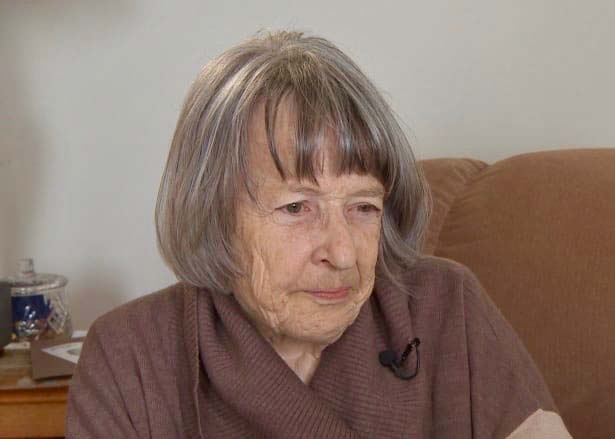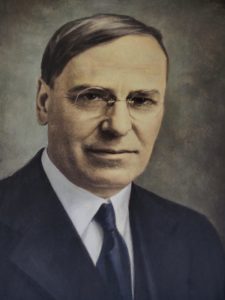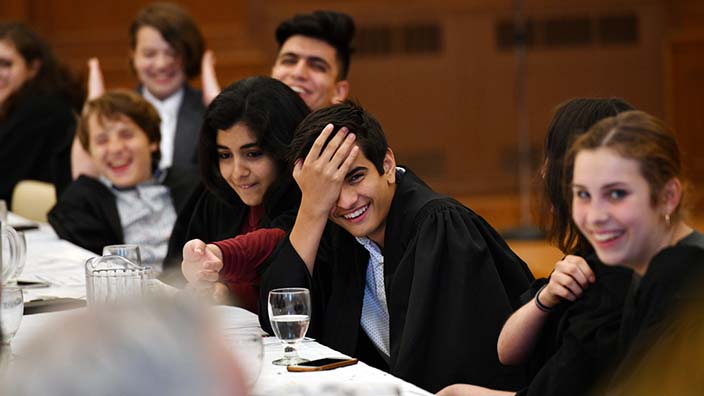Shirley Hambrick never attended King’s. She wasn’t an alumnus, or a parent of a King’s student.

Shirley Hambrick, photo courtesy CBC
But she valued King’s so much that when she died in July 2017, the long-time Dartmouth High School history teacher left half of her estate to the university in memory of her late husband, Donald Hambrick—a generous gift that will better the lives of students and other young people for years to come.
“People sometimes like to follow the true and tried path and not go off in all kinds of directions, but Shirley took a lot of chances,” says her close friend and executor Alice Hale. “She tried to introduce her students to different ideas. She didn’t go in for just ordinary teaching. She taught what she thought would be of value to students and make them think beyond Dartmouth and Canadian history. She spread her wings and got her students interested as well.”
That attitude would have fit in well at King’s.
How her gift is being directed

Dr. Samuel Prince (1886-1960) was a King’s professor, a pioneering sociologist, Anglican priest and builder of the social welfare state in Nova Scotia and Canada. The Prince Scholarship is given in his name.
Shirley didn’t put any restrictions on her gift of $149,000. “I would like to make special mention of my husband’s special interest in supporting King’s,” her will read. The university has directed the largest portion of it toward endowing the previously dormant Prince Scholarship for African-Nova Scotian students, and a portion to funding scholarships for the Humanities for Young People program.
The Prince Scholarship at King’s was established in 1959 but went into abeyance when its anonymous benefactor died. With the help of this bequest and other major gifts to the fund, it was resurrected in 2019, providing two $6,000 annual scholarships, renewable for four years. King’s Vice-President Peter O’Brien says there is a desire at the university “to build up relationships with African-Nova Scotia communities. President Bill Lahey (who also personally significantly contributed to the Prince Scholarship) believes we need to be building connections with the African-Nova Scotia community, which had lagged in various ways, and this would be an ideal way of doing so.”
“Just as they both gave their lives to a pursuit of understanding and transmitting their giving to others through teaching, I think [Don and Shirley’s gift is] completely consistent with the lives they lived, and very much appreciated.”—King’s Vice President, Peter O’Brien
Humanities for Young People reaches out to a different group: high-school students with an interest in humanities. Co-founder and co-director Laura Penny describes the week-long program as “a summer camp for high school students that encourages young people’s interest in literature, politics, history, and philosophy, and gives them a taste of university.” The program has a new theme each year.
Penny remembers learning about Shirley Hambrick’s gift by email and “actually being speechless. And I am usually the opposite of that. Having diverse perspectives in the room is necessary for everybody. The scholarship is not just about the particular kid who gets one. It’s about the whole group having a better conversation.”

Humanities for Young People is a week-long live-in summer program at King’s for students 15- to 17-years-old that gives them a taste of university life.
She adds, “The year we [studied] the challenges of reconciliation, up to a quarter of the class was Indigenous, and that made a huge difference in terms of the conversations we could have. The year we did migration, one of our students was himself an Afghan refugee. So, of course, having him there, having had this experience, was tremendously educational for all of us… It’s an awesome bequest. For us, it’s several years of scholarships. I’m very glad for this gift.”
Giving through teaching
Asked what Shirley would have thought of the way King’s is putting her gift to use, Hale says, “I’m sure she would approve of that.” Shirley’s late husband, Donald Hambrick. was a lifelong Anglican, she says, and Shirley had an interest in Anglicanism too. “They looked upon King’s as more philosophical than some other universities,” she says.
King’s Vice-President Peter O’Brien knew both Shirley and Don, although he had not seen either of them in years and did not know Shirley had planned a bequest. He first met Don as an 18-year-old studying at King’s. “My first encounter with Don would have been in 1986,” O’Brien says. “I was a student in the Foundation Year Program, and there was an old guy who would come to all the lectures and I’d see him in the coffee line and so on. I didn’t really know who he was at the time, but that was Don.”
A great lover of classics and philosophy, Don, who died a year before Shirley, was also a public school teacher. He earned his undergrad in classics in 1951, and his PhD in 1998, and taught in both the history and classics departments at Dalhousie. Always seeking new perspectives, he and Shirley travelled extensively, particularly to China and Korea, where Shirley taught for a year.
Asked if he was surprised by the gift, O’Brien says, “In retrospect, no. Just as they both gave their lives to a pursuit of understanding and transmitting their giving to others through teaching, I think it’s completely consistent with the lives they lived, and very much appreciated.”
As Shirley’s gift demonstrates, one need not be extravagantly wealthy to make a significant and concrete difference in the lives of students. For information on giving, please visit our Ways to Give section or contact the advancement office at 902-422-1271 ext. 129.

